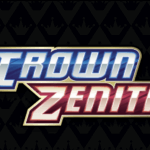In the fast-paced world of executives and decision-makers, the role of an executive assistant is pivotal. Juggling multiple responsibilities, managing calendars and ensuring seamless operations are all in a day’s work. To navigate the demands of this dynamic role, having a well-organized daily checklist is like wielding a secret weapon. In this article, we’ll unveil the essential components of an executive assistant’s daily checklist for mastering productivity and keeping the ship sailing smoothly.
Printable Executive Assistant Checklist:
1. Morning Briefing
- ☐ Check Emails: Begin the day by scanning through emails for urgent matters and updates.
- ☐ Review Calendar: Take a quick look at the executive’s schedule to anticipate the day ahead.
- ☐ Prioritize Tasks: Identify top-priority tasks that require immediate attention.
2. Calendar Management
- ☐ Schedule Optimization: Arrange and optimize meetings, ensuring no overlap or conflicts.
- ☐ Prep Meeting Materials: Gather necessary documents and information for upcoming meetings.
- ☐ Reminders: Set reminders for crucial deadlines and time-sensitive tasks.
3. Correspondence and Communication
- ☐ Email Management: Respond to emails promptly and organize the inbox for efficiency.
- ☐ Screen Calls: Filter and manage phone calls, redirecting or prioritizing as necessary.
- ☐ Update Executive: Provide the executive with a brief on any urgent communications.
4. Task Execution: Tackling the To-Do List
- ☐ Task Prioritization: Execute tasks based on priority, ensuring deadlines are met.
- ☐ Follow-up: Check in on pending items, ensuring progress and providing updates.
- ☐ Delegate Appropriately: Delegate tasks that can be handled by others efficiently.
5. Administrative Support
- ☐ Document Management: Keep files and documents organized and easily accessible.
- ☐ Travel Arrangements: Manage travel plans, accommodations, and itineraries.
- ☐ Expense Management: Keep a vigilant eye on expenses and reimbursements.
6. Midday Check-In
- ☐ Update Calendar: Make adjustments to the schedule based on any new developments.
- ☐ Lunch Briefing: Touch base with the executive for updates and potential changes.
7. Afternoon Efficiency
- ☐ Task Completion: Focus on completing outstanding tasks and addressing pending issues.
- ☐ Prepare for Tomorrow: Set the stage for the next day by organizing tasks and materials.
8. End-of-Day Wrap-Up
- ☐ Review Achievements: Assess completed tasks and goals achieved throughout the day.
- ☐ Prepare for Tomorrow: Ensure the next day’s schedule is well-prepared and organized.
- ☐ Communicate Updates: Share relevant updates and information with the executive.
9. Continuous Learning
- ☐ Professional Development: Dedicate time for continuous learning and skill development.
- ☐ Industry Updates: Stay informed about industry trends and news.
In the world of executive assistance, mastering the daily checklist is a journey of continuous improvement. By embracing organization, communication, and strategic planning, executive assistants can elevate their effectiveness, making sure they not only meet but exceed the expectations of their dynamic roles. With this executive assistant daily checklist in hand, every day becomes a well-choreographed symphony of productivity.
Key qualities include strong organizational skills, attention to detail, excellent communication, discretion, adaptability and a proactive mindset.
Utilize calendar management tools, prioritize tasks based on the executive’s goals, and be flexible to accommodate changes. Communicate effectively about the schedule and upcoming commitments.
Develop clear and concise written communication, be responsive to emails and calls, and practice active listening. Represent the executive professionally in all communications.
Exercise discretion, use secure communication methods, and strictly adhere to company confidentiality policies. Keep sensitive documents and information secure at all times.
Prioritize tasks based on urgency and importance, use task management tools, and practice effective time blocking. Learn to switch between tasks seamlessly while maintaining a high level of attention to detail.
Implement efficient filing systems, use digital tools for document management, and maintain a clutter-free workspace. Regularly review and update task lists and calendars.
Cultivate open and respectful communication, be approachable, and proactively collaborate with others. Building strong relationships fosters a positive working environment.
Attend relevant workshops, conferences, and training sessions. Network with other executive assistants and professionals in your industry to share insights and stay informed.
Stay calm under pressure, assess situations quickly, and communicate effectively with the executive and relevant stakeholders. Develop contingency plans and be adaptable in responding to unforeseen circumstances.
Take initiative in identifying areas where support is needed, offer creative solutions, and actively participate in project coordination. Demonstrate a genuine interest in the success of the executive and the organization.
Seek opportunities for continuous learning, attend relevant workshops and training programs, and stay informed about industry trends. Consider obtaining certifications or credentials that enhance your skills.
Prioritize self-care to maintain physical and mental well-being. Set boundaries, take breaks when needed, and ensure a healthy work-life balance to sustain long-term success in the role.
Keep a record of your achievements, create regular reports showcasing your impact, and communicate your successes to the executive. Actively seek feedback to identify areas for improvement and growth.
Embrace change with a positive attitude, be open to learning new skills, and proactively seek ways to improve processes. Demonstrate flexibility in adjusting to new priorities and challenges.
Seek mentorship from seasoned professionals, continuously learn and adapt to industry changes, and always strive for excellence. Build a strong support network and leverage the expertise of your peers.













